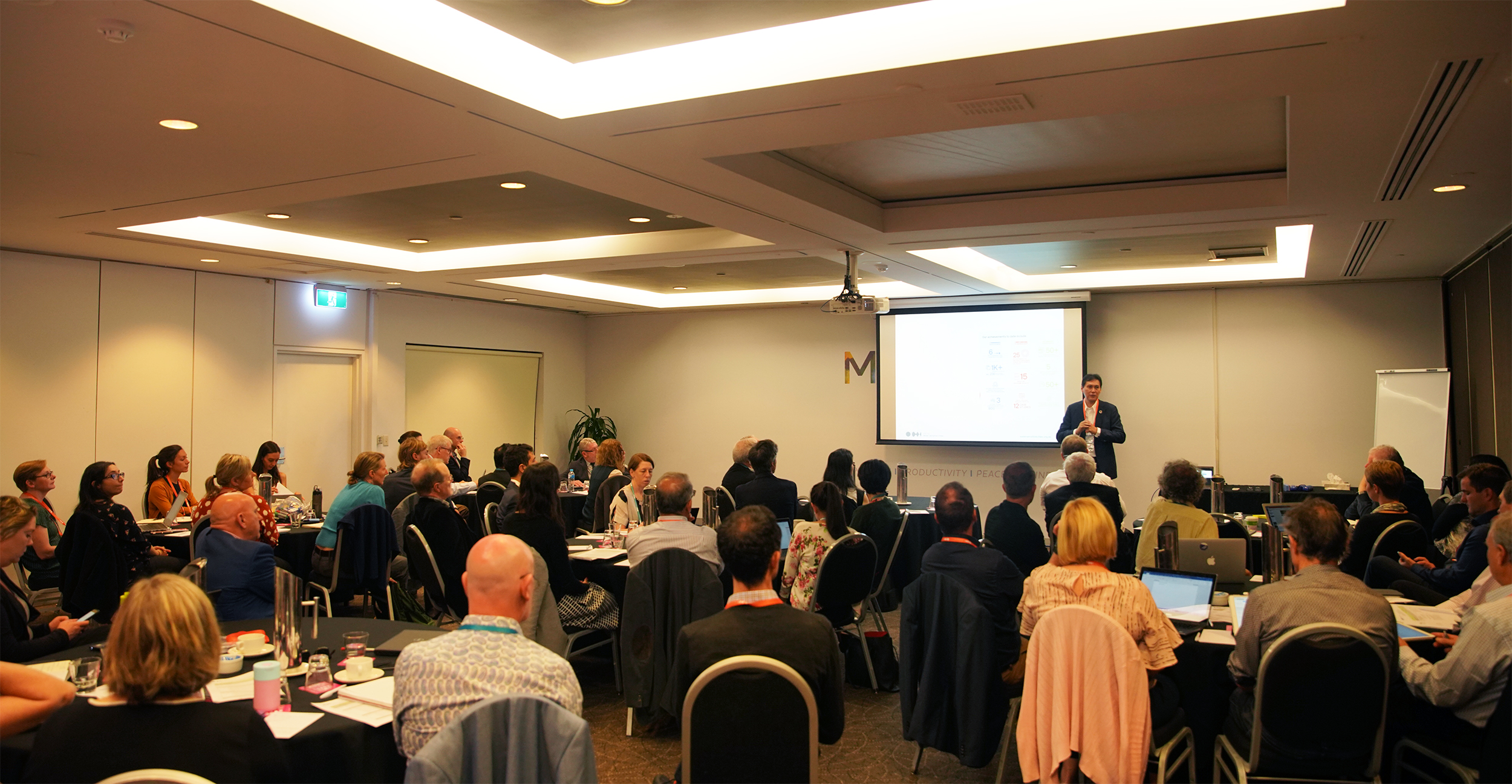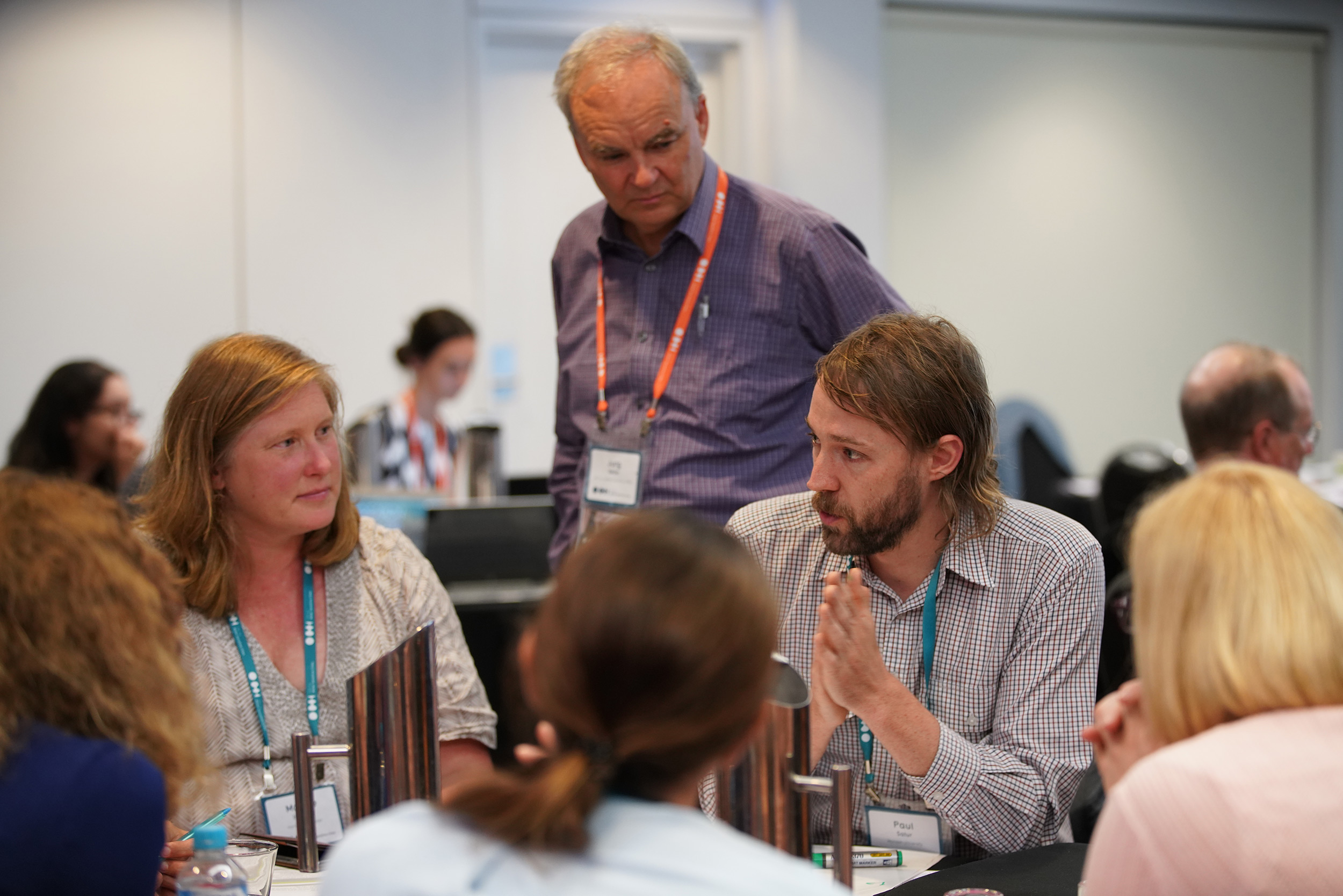Welcome to 2019-a year of hard work and future focus
Welcome to 2019, the start of a critical two-year period in which we will continue to focus on supporting our Participant organisations in realising the full value of the CRCWSC’s work to their operations, customers and stakeholders-at-large.
We had a successful year in 2018 and I watched, many times, our year-in-review video to reflect on the fruits of our collective efforts. We finished the year with some additional great achievements and we aim to build on the momentum these generated.

We will see some exciting WSC transitions outcomes
The return of the Labour Government in Victoria means the current Victorian agenda for integrated water management and liveable cities and towns will be further ingrained in the state. In 2019, we will continue to see the transition of Western Australian cities and towns into Water Sensitive Cities, as MetroNet and new Water Corporation WA strategic initiatives take hold. The innovations at the City of Salisbury in South Australia will be further strengthened by focused involvement of our Integrated Research Projects. In Queensland, we also eagerly await the continued implementation of the Gold Coast City Council’s WSC Transition Plan, with significant investment in expanding its recycled water grid mooted.
We are developing our Tranche 3 agenda
We are approaching the conclusion of Commonwealth Government funding of our CRC in June 2019; industry funding will carry the CRCWSC through its final two years to June 2021. We have, and will continue to, diligently manage our cash resources to deliver our programs to the highest standard and value to our partners.
Recent events remind us how vulnerable Australian communities can be to changing climate conditions — we have floods in north Queensland, fish kills in the Murray-Darling Basin and fires in Tasmania and Victoria. There is also continuing debate of cities and towns needing to accommodate a growing population, the role of infrastructure, and the circular argument of population growth fuelling the economic growth that is needed to fund infrastructure growth. Unfortunately, there is not enough discussion in the public discourse about how we could better and more efficiently manage our essential services—making the most of our resources, extending the operational life of our infrastructure, creating liveable higher density communities and so on.
Finding pathways for mainstreaming water sensitive cities practices is becoming an important and urgent imperative, and this was very much the topic of discussion at our December workshop to formulate the next tranche of CRC activities: Tranche 3 (T3). I’d like to extend my gratitude to those who attended this workshop, acknowledging it was a busy time of year for many of our partner organisations.
This year, our partners will hear a lot more about our plan for T3, with our formal announcement about it at the upcoming 4th Water Sensitive Cities Conference in Brisbane from 26 to 28 March. Preceding this announcement, we will commence our next round of industry consultation in February, including a series of city-based workshops in Perth, Adelaide, Sydney, Brisbane and Melbourne (please visit our website for details of our T3 Roadshow).

We look forward to what lies ahead
We now look ahead to a busy 2019. On top of our full agenda of research and adoption activities, we will be firmly focused on planning T3 and the genuine engagement with our partners that helped to make T1 and T2 a success. We hope to see you at our T3 events, and in Brisbane for our 4th Water Sensitive Cities Conference, which is promising to be our best yet.
We must learn some difficult lessons
There is also some sad news to share: I was upset to learn that our former Participant organisation, Flow Systems Pty Ltd, has gone into voluntary receivership, along with several subsidiary utilities servicing Greater Sydney. Flow Systems is a pioneer in providing third-party decentralised precinct-scale integrated urban water services. They have demonstrated the innovation in precinct-scale water recycling, harnessing the water–energy nexus, and the potential for further innovation in the integration of landscape design and stormwater harvesting, micro-climate management, and downstream flood management. But despite the logic and timeliness of their innovation, their corporate problems are disheartening. The CRCWSC will initiate an activity to learn, understand and document the pitfalls encountered in the circumstances under which the business case for Flow Systems’ profitable operation has been found wanting.